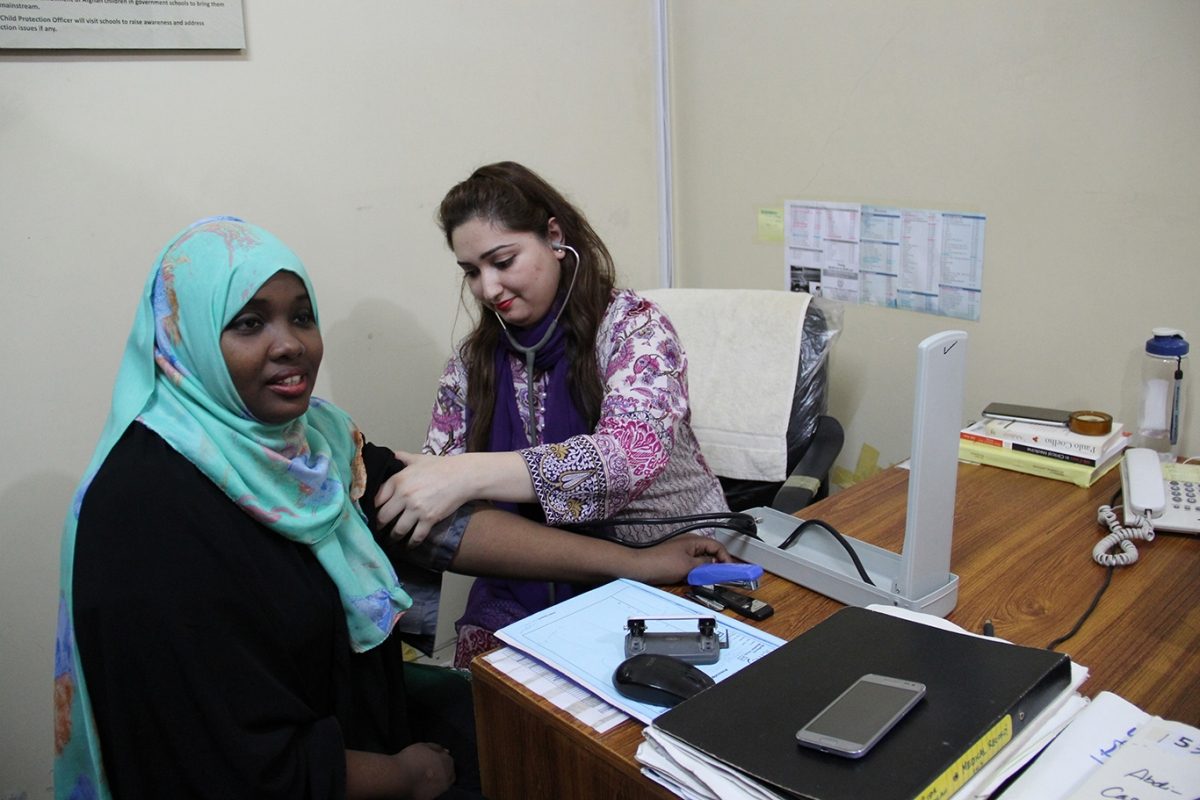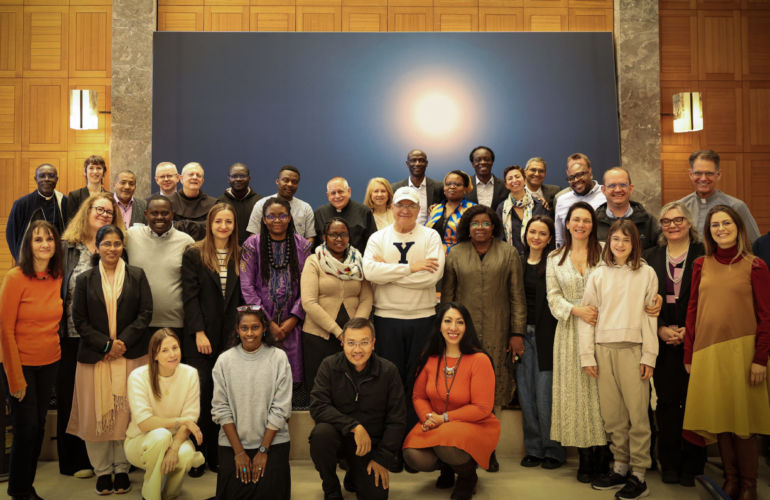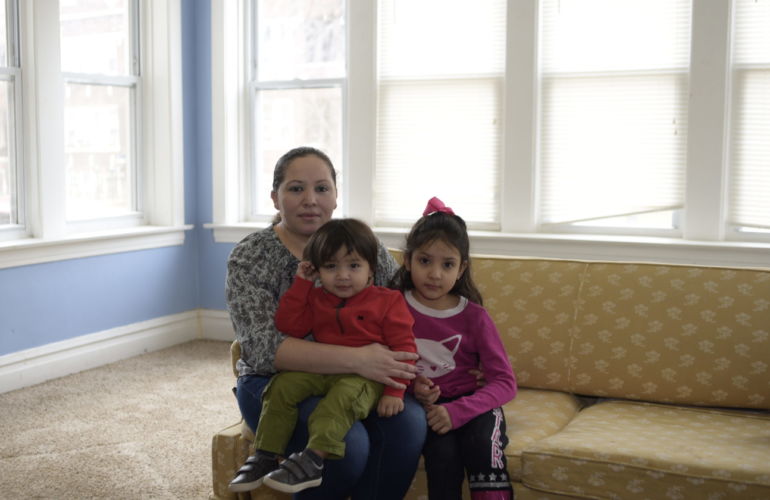All Migrants Must Have Access to Health Care

Migrants’ access to health care services is often obstructed and their marginalized status makes it difficult for them to seek the help they need. ICMC urges governments to prioritize health care access for people on the move.
Migrants’ access to social and health care services varies significantly from one country to another. While some governments grant access to such services to people on the move, many restrict such access for certain categories of migrants.
The International Catholic Migration Commission (ICMC) urges governments to prioritize health care access for all.
“Migrants, regardless of their status, should have access to high-quality health care,” ICMC Policy Officer Mantalin Kyrou told representatives of member states in a statement delivered during the International Organization for Migration’s Council Meeting on 28 November.
The ICMC statement underlined the importance of access to nutritious foods, clean water, safe, effective and affordable essential medicines and vaccines and cross-border continuity of health care.
A 2015 survey of a population composed of people with multiple vulnerabilities identified 94 percent of them as migrants. The study was conducted by Doctors of the World in 11 European countries. Nearly 68 percent of those surveyed had no health care coverage. Migrants across other continents face similar situations.
Migrants’ health care needs may differ from those of the population of the recipient country. Exposure to transmittable diseases in the country of departure, injuries incurred during the journey and precarious living situations in the country of arrival all contribute to the risk of migrants developing problems that require treatment.
Moreover, many migrants face traumatic events before departure, during their journey and upon arrival in the recipient country. War, perils during transit, vulnerability to abuse, lack of information and uncertainty about their migration status are just a few factors that migrants may face, and which contribute to an increased need for psychosocial care.
The UN Sustainable Development Goals, a target that member states aspire to achieve by 2030, acknowledges Universal Health Care for all as a priority. Member states can only reach this target if resources are allocated to provide health care to migrants on the basis of needs rather than migration status.
The ICMC statement cited Pope Francis’ message on the occasion of the World Day of Migrants and Refugees in January 2018: “Migratory status should not limit access to national healthcare.”
- Read ICMC’s statement “Prioritizing Migrant Healthcare: Making it Accessible, Affordable and High Quality”


